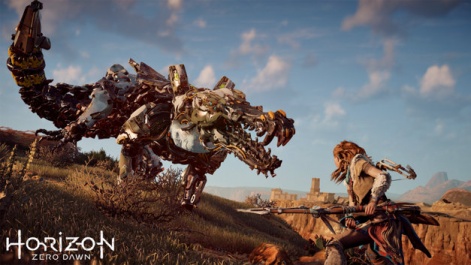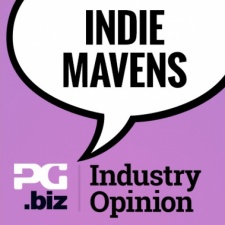Each year brings a new wave of fresh-faced developers ready to take over the world with their best game ideas, and the prospect of jumping straight into indie development and doing it your way is certainly exciting.
Yet with the indie games market becoming more competitive than ever, and developers needing to know more than just how to make games, it might also be a smart move to work at a bigger studio before going it alone.
It's a conundrum with no clear answer (certainly you should choose the path that's right for you), so we turned to our Indie Mavens for their views on whether or not young developers should dive straight into the indie world, or take some time learning the craft at a studio first.
Specifically, we asked:
- Would you advise developers to gain experience at a studio first before going indie, or should they jump straight into indie development?
I worked at Insomniac Games, Running with Scissors and n-Space before starting up Mommy's Best Games back in 2007. I worked for 10 years on successful and cancelled games. I got to see intimately how three companies operate. It was incredibly informative.
If someone is on the fence about it, I'd simply say you can gain a lot of business and design experience working for other people. Even for places that don't do well.
By the time I started on my own, I had a solid base for building my own engine, marketing, running the business, negotiating deals, level design… there's plenty to learn.
But since that isn't necessarily for everyone (I've seen some young people head straight to indie and do fine!) I think you'll know in your gut what's the right thing to do.
The short answer is yes. Absolutely yes. Working in a large studio is the best learning experience going - and you get paid! Being surrounded by people who are miles better than you is extremely useful.
Take a few years to see how the larger companies work. I promise it's useful.Ben Murch
Ask questions. Learn from them. See just how many different ways there are to do your job. They will spur you on to be great yourself.
Having access to other departments is useful too. You can learn how HR, PR and accounting works (both necessary for indie dev). There may even be a pitching process you can run your ideas through too - super useful for later.
Big companies have loads of great perks too. Some have courses to learn new skills or software. Some have gyms if that's your thing.
Most have a healthy social life, which is near vital if you've just moved to a new town and don't know a soul. You'll also make friends and very probably meet people that you want to start companies with.
You may be champing at the bit to get out there and make games, because that's really, really exciting. However, take a few years to see how the larger companies work. I promise it's useful.
I started my own studio, initially self publishing (my first actual 'published' game was a ST/Amiga Format cover disk one called "Jitterbugs") before picking up a publisher for some of our other games like SkyStrike, JetStrike and Base Jumpers. Adam and I were also releasing other games via the Deja Vu Licenseware label (a clever shareware variant) and running the STOS and AMOS clubs.
That taught me a lot about project management and how not to run a company. So, having shut that down in 1995, I got a job at Electric Spectacle in Newcastle and essentially got ‘acquired’ as part of the team as they were bought by Cranberry Source and then by Argonaut Software, who I spent seven years with writing major console titles.

Each team taught me a lot, both about the professionalism needed for working on major titles and working with other people, but also about what I did and didn’t enjoy working on.
So, Adam and I were already working on side projects that we were self-publishing as Strange Flavour from 2000 to 2004 when Freeverse offered to back us and become our publishing partners if we left and set up Strange Flavour Ltd. Which we of course did.
There's a ton to be learned from the studio environment, not least being the professionalism you should have as a developer.Aaron Fothergill
I’d say that doing something as an indie (or just writing and releasing a game on your own volition) is a good thing to have done before joining a studio as it shows your talents and shows you're at least competent, but there's a tonne to be learned from the studio environment, not least being the professionalism you should have as a developer/publisher.
Both will probably teach you lots of things you should avoid in future. Just ask any ex-studio dev for war stories and prepare to be appalled.
One aspect of studio versus indie to take into account is how working in a studio as part of a team gives you (and the project) more flexibility to cope with any random personal crisis.
If you're an indie, one random family crisis, like the one we've just hit, or a localised disaster blows all idea of project deadlines out of the window. Which makes any sudden costs even worse as you’re dependent on project completion to earn.
In a studio, a well-planned team should be able to cover you needing time away and (usually) you still get paid.
There's a definite risk factor to consider.
I would advise developers to gain experience first, but not necessarily in a video games studio. You can learn a lot in other fields and experience is good, wherever it comes from.
For example, I'm pretty sure you'll learn a lot more tricks about PR and marketing in a communications agency than in a video games studio. Indies must have a wide range of abilities to be successful and you can't learn all the best advice by staying in a video games environment.
Working in very different types of companies (very large to very small) is also important to understand how all of this works, so try to pick the best aspects of each one if possible.
That's more or less what I did for myself and it has been very useful.
I would advise getting some studio experience before starting an indie project. I didn't follow my own advice because my background is more in mods (hobbyist development) and aside from a short four-month stint at EA, I really didn't have much professional games development experience.
Just spending four months at a big publisher taught me a lot.Dan Menard
Just spending those four months at a big publisher taught me a lot, but I didn't have time to get fully immersed in the process and the culture.
As a result, I've probably learned a few lessons the hard way and it is a big effort to catch up to the rest of the industry (because they've been doing it for years) if you have no idea how games are made, how teams are structured or how companies work before starting your own studio.
Those are lessons you can learn much more quickly and safely working for someone. I sometimes regret not having that studio experience because I feel it would give me more confidence in negotiations and in how I manage my teams.
Your mileage may vary though and many times studios can be tough places to work. Best of luck on your journey and happy new year!
I live in the Netherlands and graduated from the Utrecht School of Arts in 2014 with a MA in Game Art.
According to data presented by The Games Monitor in 2015, 1,600 students graduate annually from games-related colleges, while only around 60 (paid) job listings are posted yearly in the Netherlands. (Of those jobs, based on my observations, maybe five will be game art related, if you’re lucky!)
So, unless you are willing to move to another country, there are basically two options for those pursuing a career in the games industry in the Netherlands (at least in 2014, when I was starting out):
1.) Get a job at Guerrilla Games.
2.) Go indie.

(Note: Nothing against Guerrilla Games. But unless your skills fit their specific requirements, you're not going to be hired by them.)
Founding Arcane Circus together with Erik van Wace came partially from a desire for creative freedom, but also partially out of necessity. My games industry experience hasn't, however, been entirely limited to working at Arcane Circus.
I certainly would encourage people to work with others – it's a great way to gain experience and learn from their way of running a studio.Molly Heady-Carroll
Since graduating I have been freelancing remotely on games projects. I've worked on small projects like Brock Crocodile and Melancholy Republic and larger productions such as Night School Studio’s The Mummy: Dark Universe Stories.
Slowly growing as a freelancer has allowed me to (kinda sorta) gain studio experience in a climate where it's very difficult to find it.
I certainly would encourage people to work with others – it's a great way to gain experience and learn from their way of running a studio and going about things. But some people have more choice when it comes to how to shape one’s games industry career path than others.
I have had to be inventive when it comes to gaining my games industry experience, in part due to my geological location. Working on independent projects and doing freelance have taught me different lessons and experience gained from both pursuits supplement the other.
I love Arcane Circus and all we've achieved. I wouldn't trade it for anything. Perhaps my path would have been different if I lived in a country with more studio jobs available to me though, who knows.
In short, I'm afraid I have to give the most sit-on-the-fence answer anyone could give to this question: it depends.




























